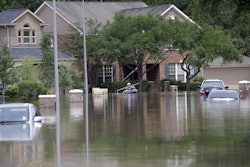20
U.N. Special Envoy Urges Saving Syrian Ceasefire; The Road to Rio;
Russia's Love Affair with Donald Trump; Water Levels at Record Low at
Venezuelan Dam; New Wave of Killings in Bangladesh. Aired 3-4a ET - Part 2>
CHURCH: Absolutely, 10.35 in the morning there in Jerusalem. Oren Lieberman joining us live. Many thanks to you for reaction there from the region. I appreciate it.
Well, Trump was harshly critical of the Obama administration's response to terror attacks, and he had a warning.
(BEGIN VIDEO CLIP)
TRUMP: And then there's ISIS. I have a simple message for them. Their days are numbered. I won't tell them where, and I won't tell them how. We must...
(APPLAUSE)
We must as a nation, be more unpredictable. We are totally predictable. We tell everything. We're sending troops, we tell them. We're sending something else, we have a news conference. We have to be unpredictable. And we have to be unpredictable starting now.
But they're going to be gone. ISIS will be gone if I'm elected president. And they'll be gone quickly.
(END VIDEO CLIP)
CHURCH: A bold statement there from Donald Trump. Joining us now is Peter Trubowitz, he is a professor of international relations and director of the United States Center at the London School of Economics. Thank you, sir, for talking with us. PETER TRUBOWITZ, LONDON SCHOOL OF ECONOMICS DIRECTOR: Good to be here.
CHURCH: So, let's start with your overall reaction to Donald Trump's whole foreign policy speech. What did you think?
TRUBOWITZ: Well, the speech was short on policy specifics. There were many inconsistencies in the speech. And critics I think have rightly hammered him for that. The speech won't do very much to reassure America's allies who are concerned, genuinely concerned about what's going on in the United States.
But I think from a political standpoint, I think Trump probably helped himself some. I mean, I think the target audience of this speech was not foreign policy wonks and the United States, and not foreign capitals. It's independent voters.
Trump is already beginning to look forward to the fall campaign. And I think yesterday's speech was part of an effort to pivot towards the center in an attempt to try to, you know, line independents up, or attract independent voters in the fall.
CHURCH: Now Trump also, he accused the Obama administration of having a disastrous foreign policy. What do you say to that?
TRUBOWITZ: Well, again, I think the -- I mean, I think Obama has many foreign policy achievements to point to. But I think the point of this speech was not policy, it was politics.
And I also think it's important when you read the speech -- I read through the speech. And it's what's important in that speech is as much what Donald Trump didn't say as what he did say. There were no references in that speech to building a wall to keep Mexicans out.
There were no references in the speech to keeping Muslims out of the United States. There were no references in the speech to giving America's allies, you know, allowing or encouraging America's allies in Asia, Japan, and South Korea to get nuclear weapons.
These are all things that Trump has said on the campaign trail. And he left them out of the speech. So, what's interesting in part in that speech is what he set aside in his attempt to essentially pivot away from those positions.
Of course, what you heard in that speech as well is him hammering China, him, you know, telling America's ally, especially in Europe, but Asia as well that they have to do more on defense. And really taking kind of the foreign policy establishment in Washington to task, blaming Obama and Clinton and put them together for being incompetent on foreign policy or feckless on foreign policy.
And I don't think those positions are going to hurt him in the fall if he manages to come away with the republican nomination.
CHURCH: All right. [03:39:58] TRUBOWITZ: So, I think what we really saw was Trump attempting to use foreign policy to establish Clinton as the kind of Washington establishment candidate, and himself as the candidate of change.
CHURCH: All right. Peter Trubowitz, thank you so much for joining us from London. People of course waiting now to hear more specifics, more details. I appreciate it.
TRUBOWITZ: Good to be with you. Yes.
CHURCH: Well, Trump's popularity seems to be soaring in Russia. CNN international correspondent Fred Pleitgen takes a look at why so many Russians seem to be on team Trump.
(BEGIN VIDEOTAPE)
FREDERIK PLEITGEN, CNN SENIOR INTERNATIONAL CORRESPONDENT: It's no secret that Donald Trump and Russian President Vladimir Putin seem to feel a certain admiration for each other.
He is a brilliant and talented person without a doubt.
TRUMP: And I like him because he called me a genius. He said Trump is the new real leader. Trump should be the leader and he is a total genius.
PLEITGEN: And many ordinary Russians are Trump fans as well. "The key thing about him is his willingness for a breakthrough in relations with Russia," this man says. Maybe they won't get closer, but at least there will be dialogue.
(FOREIGN LANGUAGE)
PLEITGEN: And this man adds, "First of all, Trump is a positive guy. And he spoke about Putin in a good way. He wants positive change in America."
In a recent Yuga poll conducted in the T-20 nations, those surveyed in every country said they would take Hillary Clinton over Trump, except in Russia, where the Donald leads by a landslide.
While relations between Russia and the Obama administration have soured over Moscow's policy in Ukraine and Syria, Trump in his foreign policy speech says he thinks he can work with Russia.
TRUMP: I believe an easing of tensions and improved relations with Russia from a position of strength only is possible.
PLEITGEN: Many Russians believe if Donald Trump were to become president, that the U.S. would have a more isolationist foreign policy. They think that would lead to fewer disagreements between the U.S. and Russia and ultimately, to better relations.
A recent Trump campaign video seemingly lumping Putin in with ISIS as a challenge to America did lead to some anger in the Kremlin. But Fyodor Lukyanov, the head of the Russian Council on Foreign and Defense Policy says Vladimir Putin still appreciates Trump's style.
FYODOR LUKYANOV, RUSSIAN FOREIGN & DEFENSE POLICY COUNCIL CHAIRMAN: He basically likes those who are frank, open, and disregard political correctness. And this is exactly the case of Mr. Trump.
PLEITGEN: It's a style that propelled Vladimir Putin to several terms as Russian Prime Minister and President. While some believe Trump's frankness could carry him all the way into the White House, he still has a long way to go.
Fred Pleitgen, CNN, Moscow.
(END VIDEOTAPE)
CHURCH: And we have this breaking news just in to CNN. North Korea has attempted to fire another mid-range missile. But a South Korean defense official says it seems to have failed.
That official says the military is investigating what happened. And we will, of course, will bring you more details on this breaking news as they come into us.
We'll take a short break here. We'll be right back.
[03:45:00] (COMMERCIAL BREAK)
CHURCH: Let's go back to our breaking news.
We're told North Korea has attempted to fire another mid-range missile. But a South Korean defense official says it seems to have failed. That official says the military is investigating what happened.
CNN's Will Ripley joins us now from Tokyo. And, Will, of course, South Korea is saying this seems to have failed. What do we know about what happened here? And how much longer will it take before we get more information do you think?
RIPLEY: Very limited information, especially whenever there is a failed missile launch, a reported failed missile launch. Because I was in North Korea just about two weeks ago on their most important holiday, the Day of the Sun, when there was another missile launch that South Korea and the United States say failed.
And that missile, just like the one that was reportedly attempted to be launched and failed today, both of those were mid-range missiles, "Musudan missiles," as they're called, launched from at least in the last case.
It was a mobile launching device. A device that would give North Korea, if this technology was successful, the ability to move around from the locations from which they launch, making it far trickier to detect from spy satellites. It would be a very dangerous development, although perhaps not as dangerous or significant as the successful submarine missile launch that happened over the weekend. Now we are one week away from a major political gathering in North Korea. The Workers Party Congress, it happens next Friday. It was just announced South Korea is very concerned that in addition to this mid- range missile launch, which they had been predicting since Tuesday when they officially announced this.
They also think there is a very good chance there could be a fifth nuclear test for North Korea at some point ahead of this Workers Party Congress. Now, again, you never know exactly what's going to happen.
We are talking about Pyongyang. But their activity, the repeated launches and tests that have been starting really since the beginning of this year indicates that the ramped up military activity will continue ahead of this major event next week. Rosemary?
CHURCH: Yes, indeed. And of course, the worry about this mid-range missile is that if it does succeed, it has quite a range, Japan, Guam, right? So, whilst it's failed at this point, what a lot of people worry about is each failure, it builds on their knowledge.
RIPLEY: It does. It does. And if this missile launch had been a success we may have actually learned a bit more. Because North Korean state media will often announce these military triumphs to their own people in an effort to project power on behalf of the supreme leader Kim Jong-un and his workers party and the military which are so powerful and the whole power and the structure of the North Korean society.
But, yes, these mid-range missiles a regional concern absolutely from this mobile missile launchers which make the launches difficult to detect. And the submarine launched missile again, a lot of analysts saying that that is perhaps the most troubling development. Because submarines are even more difficult to detect.
They can get right up to the shores of enemy territory, including the mainland United States. And these missiles, Rosemary, could someday be capable of carrying those miniaturized nuclear warheads that North Korea also claims to possess.
CHURCH: Certainly very unnerving. CNN's Will Ripley joining us there live, bringing us up to date on that breaking news from North Korea. He is there in Tokyo and keeping a very close eye on that. Many thanks to you, Will.
Well, many in Bangladesh are on edge after an alarming trend of religiously motivated violence against activists and secular writers and bloggers. Even Muslim leaders are growing concerned.
CNN international Ivan Watson joins me now from Hong Kong for the latest on this. And, Ivan, of course the details are absolutely shocking. And now this climate of fear is taking hold. What are people saying and doing in the aftermath of these horrifying attacks?
[03:50:04] IVAN WATSON, CNN SENIOR INTERNATIONAL CORRESPONDENT: In some of the communities that have been targeted like the Atheist blogging community, and now the LGBT community, many people are going into hiding or some have simply fled the country.
Now the U.S. ambassador to Bangladesh, she spoke to CNN overnight to CNN's Kristi Lu Stout and she gave us a sense of the scale of the violence which we weren't entirely clear of that there were at least 35 attacks, deadly machete-style attacks over a period of some 14 months in Bangladesh.
And some 28 of these, according to the U.S. embassy, had been claimed by a terrorist group. She went on to call on the Bangladeshi government to forcefully speak out to condemn these acts of violence.
Grief and shock after a brutal double murder. On Monday evening, a gang armed with machetes carried out a deadly home invasion in the Bangladeshi capital, killing two gay rights activists.
A local branch of Al Qaeda claimed responsibility for this savage act of homophobia. Something violent and frightening is happening in Bangladesh. A majority Muslim country and secular democracy.
Militants linked to Al Qaeda and ISIS are hunting down activists and intellectuals and killing them one by one. They've murdered at least six Atheist bloggers and secular publishers in just 14 months. And activists say they've documented thousands of cases of violence and intimidation against religious minorities.
(BEGIN VIDEO CLIP)
UNIDENTIFIED MALE: Rape, abduction, gang rape, forceful conversion, destruction of temple, and also destruction of houses belonging to the minority community.
(END VIDEO CLIP)
WATSON: These days even some Muslim clerics don't feel safe.
(BEGIN VIDEO CLIP)
AHMED REZA FAROOQI, IMAM: Extremism in Islam, now it is rising. Now it is rising day by day.
(END VIDEO CLIP)
WATSON: Ahmed Reza Farooqi is an imam at a mosque in the Bangladeshi capital who follows a mystical interpretation of Islam known as Sufism. His father, Sheikh Nurul Islam Farooqi regularly preached peace and tolerance on TV.
"For that," his son says, Farooqi received threats from hard-liners from the Wahhabi branch of Islam, which often rejects Sufism.
(BEGIN VIDEO CLIP)
FAROOQI: My father has been threatened from left side, from Wahhabi people, from terrorist people.
(END VIDEO CLIP) WATSON: In August 2014, attackers broke into the elder Farooqi's home, tied him up and slit his throat. Ahmed Reza has taken over leadership of his father's mosque. This Muslim cleric is calling on the government to crack down on Islamist extremists before it's too late.
(BEGIN VIDEO CLIP)
FAROOQI: If this sector will not be stopped, there will be massacre. Massacre with the people who love the Sufism, who love the modern Islam.
ANNISUL HUQ, LAW JUSTICE AND PARLIAMENTARY AFFAIRS MINISTER: We try hard to protect our citizens.
(END VIDEO CLIP)
WATSON: Law and justice minister Annisul Huq rejects claims what the machete murders are being carried out by local members of Al Qaeda and ISIS.
(BEGIN VIDEO CLIP)
HUQ: There is no existence of ISIS in this country. Now, ISIL-related incidents can take place. And one amateur can demand that I belong to the ISIS. That does not make him a member of ISIS.
(END VIDEO CLIP)
WATSON: In this growing climate of fear in Bangladesh, some community leaders vowed to stand strong against what they describe as the forces of darkness that threaten their country.
(BEGIN VIDEO CLIP)
FAROOQI: No, I'm not afraid. I'm not afraid of the terrorists. And I will not fear of the darkness.
(END VIDEO CLIP)
WATSON: Rosemary, the Bangladeshi government says it's doing everything possible to crack down on the extremists behind these attacks. But it's clearly not enough.
This month alone, there have been three separate cases of deadly machete attacks killing an Atheist blogger, a university professor, and now two gay rights activist. Rosemary?
CHURCH: A real concern and some very brave people there. Nearly 4 o'clock in the afternoon. Ivan Watson, joining us from Hong Kong. Many thanks to you for the details.
Well, a plane load of lions getting ready for a trip halfway around the world. Find out where they're headed and why. That's next on CNN NEWSROOM.
[03:55:00] (COMMERCIAL BREAK)
CHURCH: Russia just launched its first rocket from a new cosmodrome. Thursday's successful liftoff came a day after a technical glitch.
Scientists sent an unmanned Soyuz rocket carrying three satellites into orbit from the new space port near China's border. This is Russia's first cosmodrome. It currently uses a site in Kazakhstan.
And finally, one of the biggest airlift of lions ever. Thirty three big cats will be flown to South Africa, rescued from Peruvian and Colombian circuses. Almost all of them have been declawed and many have broken teeth.
(BEGIN VIDEO CLIP)
JAN CREAMER, ANIMAL DEFENDERS INTERNATIONAL PRESIDENT: This is their planet too. They have the right to live here. And the way they're treated by humans is incredibly bad. And we need to change the way we treat other animals.
(END VIDEO CLIP)
CHURCH: The lions are expected to arrive in Africa on Friday. Once there, they will be taken to a big private cat sanctuary north of Johannesburg.
And thanks for your company. I'm Rosemary Church. Remember to catch up with me any time on Twitter @rosemarycnn. There is more CNN NEWSROOM after a short break. Stick around.
[04:00:00] (COMMERCIAL BREAK)
(Byline: Rosemary Church, Sara Murray, Will Ripley, Drew Pinsky, Rafael Romo, Derek Van Dam, Christiane Amanpour, Shasta Darlington, Oren Liebermann, Frederik Pleitgen, Ivan Watson)
(Guest: Peter Trubowitz )
(High: Donald Trump puts ISIS, China, and Hillary Clinton on notice in his biggest foreign policy speech so far; Aleppo under fire. The U.N. Special Envoy on Syria urges Russia and the U.S. to save the country's fragile ceasefire; Also ahead, the road to Rio. Brazil takes possession of the Olympic flame with 100 days to go until the summer games; Plus, many Russians seem to have a love affair with Donald Trump. A little later, why the American presidential candidate is so popular in Russia; Plus, the Olympic flame is now in Brazil's hands, but ticket sales for the games have been disappointing; Water levels at the dam that provide 75 percent of Venezuela's electricity are at record low levels due to a drought caused by the weather pattern known as El Nino; A wave of killings in Bangladesh is fuelling a growing climate of fear; Russia just launched its first rocket from a new cosmodrome. Thursday's successful liftoff came a day after a technical glitch. )
(Spec: Politics; Policies; Election; Donald Trump; Trade; Nuclear Weapons; Disasters; Energy; Government; Lawsuits; Sports; Terrorism; Crime; Science )






















